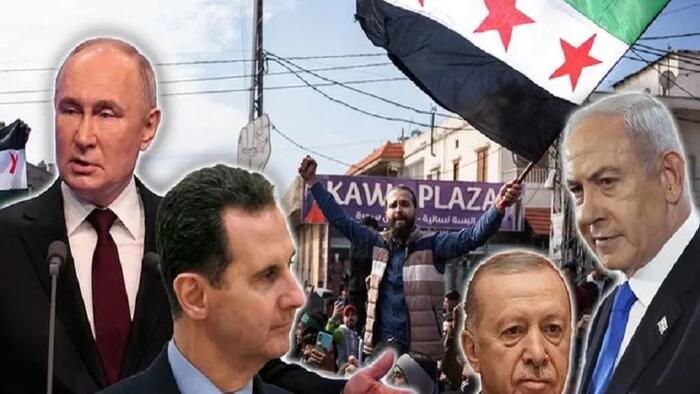In a recent annual Q&A session, Russian President Vladimir Putin addressed the shifting dynamics in Syria, framing Russia’s military intervention as a successful effort to prevent the emergence of a terrorist enclave reminiscent of Afghanistan. He asserted that the recent regime changes in Syria cannot be viewed as a defeat for Russia, emphasizing that although the groups that have taken over, some of which have terrorist affiliations, have adjusted their views, this transformation is why Western nations are now seeking to engage with them. Putin defended the conduct of Russian armed forces, stating that there are no longer any Russian ground troops in Syria. He claimed that the Syrian and pro-Iranian forces left Aleppo without a fight, giving up control and subsequently evacuating to Lebanon, Tehran, and Iraq.
Looking ahead, Putin expressed optimism regarding the future of Russian influence in Syria, indicating that many groups controlling the current situation want Russian military bases to remain, potentially for humanitarian purposes. He underscored that while Russia’s standing has changed, Israel appears to have benefitted significantly from recent developments, effectively demilitarizing parts of Syria and expanding its territorial claims. Despite this, Putin used the opportunity to criticize Israel’s illegal settlements and operations in Palestine, consistent with Russia’s longstanding positions regarding these issues. Observers noted Putin’s lack of criticism towards Turkey, which he depicted as a nation acting in its own security interests regarding its southern borders.
Putin underscored Turkey’s attempts to manage the return of Syrian refugees and counteract Kurdish groups near its border. His acknowledgment of Turkey’s actions was framed as pragmatic, reflecting an understanding of the necessity to address the “Kurdish problem” through negotiations with the authorities currently controlling the territory. Critics noted that this approach seemed to grant Turkey a degree of leeway uncommon for a neighboring power involved in military operations in Syria. In contrast, Turkey’s ties to Russia are deepened by cooperation in various sectors including energy and trade, establishing a complex interdependence that influences Russia’s positions on these national security matters.
The warmth of Putin’s relationship with Turkish President Recep Tayyip Erdogan appears to form the backbone of Russia’s softer stance towards Turkish actions in Syria. Rather than express condemnation, Putin praised Erdogan’s commitment to Turkey’s interests, depicting him as a competent and reliable partner. This perspective grows more evident within the context of broader regional dynamics; many Syrians reportedly support Turkey while Russia’s image remains negative across the region. Thus, Putin’s silence on Turkey’s encroachments can be interpreted as a strategic choice aimed at safeguarding Russian interests and maintaining regional stability, especially amidst Syrian political fractures and the survival of the Assad regime.
The divergence in Russia’s responses to the military activities of Turkey and Israel hints at a calculated approach guided by realism rather than ideology. While both countries have acted militarily in Syria, Putin’s differentiated responses underscore Russia’s strategic goals. Criticism towards Israel aligns with the negative perception of its occupation, while the acknowledgement of Turkey’s actions serves Russia’s diplomatic ties, seeking to balance regional power relations without exacerbating tensions. This dual strategy reflects a pragmatic necessity; engaging with Turkey allows for cooperation, potentially influencing developments within Syria towards outcomes favoring Russian interests.
Ultimately, Putin’s recent remarks highlight a coldly pragmatic stance: rejecting responsibility for the current landscape in Syria and assessing the situation through a lens of national interests. By refraining from aggravation with Turkey while critiquing Israel, he displays a level of realism in geopolitical strategies. This approach signals a commitment to adapt to shifting realities, regardless of the disappointment it may cause among observers who expected a firmer stance against Turkey. Putin’s methods suggest an understanding that to navigate the complexities of Syria and uphold Russian influence, flexibility and realistic assessments must prevail, ensuring that Russia’s objectives in the region remain attainable.

